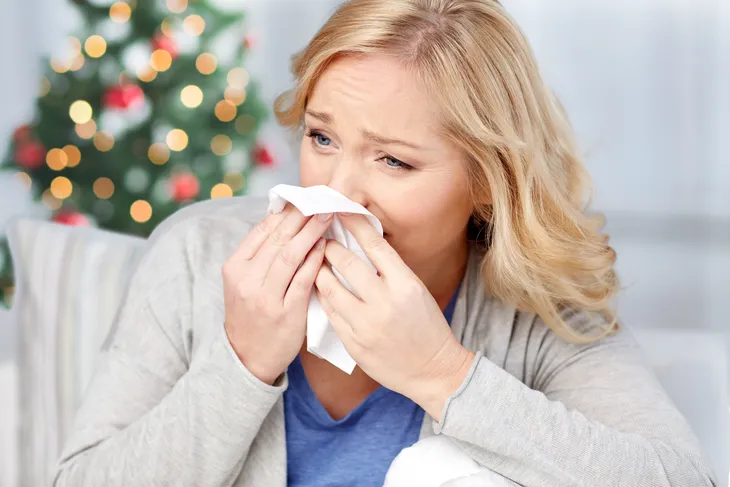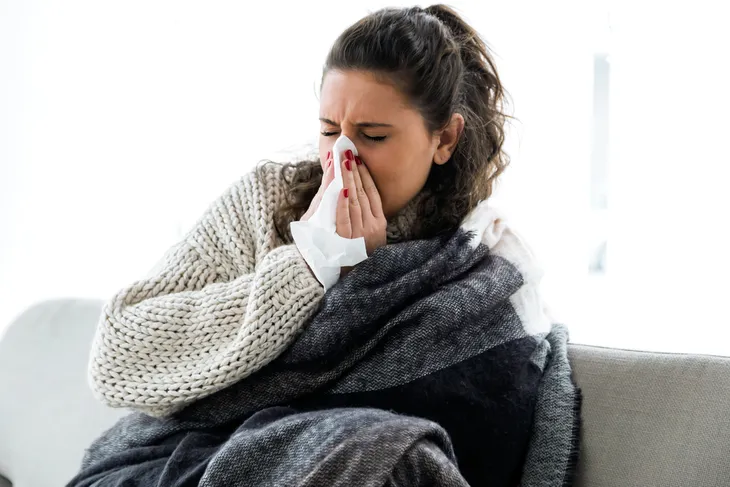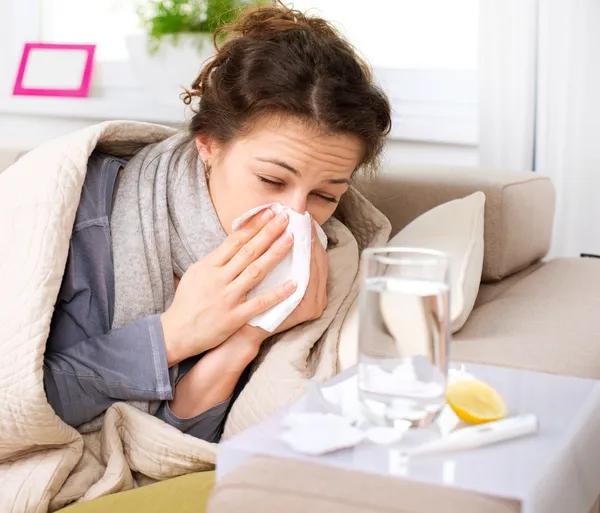The 2018 flu season outbreak was one of the worst in recent history, and caused people to become more concerned and ask a lot of questions – which is a fair thing to do when faced with a widespread illness.
However, with the questions come some misdirected answers and myths, so let’s take a look at what health experts have to say about 12 common inquiries about the flu…
1. How Deadly is the Flu?
The flu claims lives every year, and the 2018 version is particularly deadly and is making headlines because of this. Fortune explains that 34-people in San Diego, California died from the flu during the last week of 2017 alone.
However, the same source explains that about 5 to 20-percent of the population gets the flu each year, and while “hundreds of thousands” are hospitalized as a result, “tens of thousands die” – which is why everyone “who’s medically capable” should get a flu shot, even though it’s less effective this season.
2. Why Does the Flu Have a ‘Season’?
While colds and coughs can appear any time of year, the flu typically peaks between December and February, notes the same source – which is why it’s a good idea to get the flu shot in the fall, to get ahead of the virus.
Why does the flu rear its ugly head in winter? While there’s no definitive answer, the source notes experts believe the virus thrives better in dry, wintry conditions, while “low humidity may also make it easier for the flu to attack the lungs.” The cross-travel boom during the holidays may open the door to different flu strains, it adds.
3. How to Shield Your Family From Flu
Despite the lowered effectiveness of the flu shot this year compared to previous year, the Centers for Disease Control and Prevention (CDC) still says a flu shot is the single biggest deterrent of the flu virus. You should get one by the end of October, says the source, but you can still get one today as flu season can extend well into spring.
Aside from getting your eligible family members vaccinated, the CDC also says there are “preventive actions” you can practice every day including avoiding people who are sick, properly covering coughs and sneezes (into a tissue or into your upper sleeve), and proper hand washing. (Check out our article on Flu Symptoms in Kids: Signs Your Child Has The Flu).
4. Should I Get The Flu Shot Even If It’s Not As Effective?
Yes, it’s true this year’s flu shot is less effective against the dominant strain, H3N2. However, it’s not the only flu virus out there, so getting a shot can still provide you protection – more than the 0-percent effectiveness of avoiding a shot altogether.
In fact, Fortune said in January that it’s expected “millions” more Americans will get the flu as other strains such as H1N1 rise up. So protect yourself now, and avoid the headache – literally.
5. Immunity Takes Time
After you get the flu shot, it doesn’t mean you’re protected right away. This may be leading some people to believe myths such as the vaccine itself is causing illness, or that the shot is not effective at all – the truth is, the person may have already contracted the virus by the time the vaccine becomes effective.
The truth is that it takes around two weeks after getting a flu vaccine for it to provide any protection against the flu bug, as it takes time for the antibodies that fight off the virus to develop in your body, notes WebMD.
6. How Does the Flu Spread?
The flu bug can be passed from person to person directly and indirectly. The CDC explains that someone with the virus may be able to infect another person from up to 6-feet away through coughing, sneezing or even just talking. The droplets containing the flu may land on another person or be inhaled, it adds.
Meanwhile, although a less common culprit, people can still get the flu by touching objects with an active virus on it and then touching their mouth or nose, says the CDC. The CDC reports that the flu virus can live up to 48-hours on some surfaces. This is why hand washing is important, especially if there are sick people in the home.
7. What’s the Flu Shot and Egg Connection?
There are cases when a person shouldn’t get a traditional flu shot – one of them is because of the egg protein content of the vaccine that some people have an allergic reaction to, according to a fact sheet from Immunize.org.
However, the source points out there is a flu vaccine called Flublok, which “does not use the whole influenza virus or chicken eggs in its manufacturing process,” and is designed for people 18-and older. It notes that any flu vaccine can be given to egg-sensitive people, but if there is a history of serious egg allergies, they should be supervised by a healthcare professional that knows how to handle a reaction.
8. How Effective the Flu Shot This Season?
Vox.com says recent stats from the CDC show that based on 1,700-flu cases it was tracking across the U.S., it found the flu vaccine to be 36-percent effective so far this season, “meaning it reduced a person’s risk of getting sick with flu and going to a doctor’s office by about a third.” The effectiveness of the vaccine can be as high as 70-percent during other seasons, it adds.
The problem is the dominant strain this season – H3N2. The flu was only found to be 25-percent effective against this variation, it adds (the effectiveness of the flu shot in Canada against H3N2 is even lower, at 17-percent). Experts believe the fact the virus for the vaccine is grown in eggs (which is inactivated) is causing the virus to adapt to the egg, thus becoming a “mismatch” against the active virus. This issue is specific to H3N2.
9. No, The Shot Won’t Give You Flu
Despite people every year saying they avoid the flu shot because it made them sick in a previous season, it’s simply not true. That’s because the vaccine is made from a “killed virus,” says the Today Show. “It’s biologically impossible for you to catch the flu from being vaccinated,” it adds.
The idea of the vaccine is that it takes a select few of the proteins from the dead virus to “rev up” your immune system. However, it’s not a complete virus in the vaccine, and it won’t suddenly mutate into a full-grown flu, it adds. There are possible side effects, but they aren’t the flu – and you might just be dealing with a cold. (You may also already have the flu but without symptoms by the time you get the shot and give it time to work, it notes).
10. How Long Will the Vaccine Provide Protection?
Typically, a flu vaccine given in any given season will be effective for the duration of that flu season, “and sometimes a little longer,” according to VeryWell Health.
However, the source points out that immune responses to the vaccine can differ from person to person, so the time frame of flu vaccine effectiveness is not guaranteed. “Some people may be protected into the following year and others may not,” it adds. Either way, it’s a good idea to get vaccinated each year because the viral strains change.
11. How Do You Know if It’s The Flu in the First Place?
Colds and flu tend to have overlapping symptoms, but flu is typically a lot worse and can be life-threatening in some cases. A cold usually presents upper respiratory tract symptoms including runny nose, sneezing, and the like. A low-grade fever can also be present, especially in infants.
Meanwhile, influenza (flu) also hits the lower respiratory tract, impacting the lungs. It also often causes a fever that can spike higher than one from a cold, and can cause other symptoms such as headache, cough, fatigue, muscle and body aches, and a sore throat.
12. What to Do if You Get The Flu
If you have the telltale signs of the flu coming on, even if you’ve been vaccinated, there are still ways to try and suppress it. Make an appointment to see your doctor, who may prescribe antiviral medications such as Tamiflu that can shorten the life of the virus (if taken within 2-days of when the symptoms appear).
It’s important to note that antibiotics won’t be effective against the flu bug. Aside from getting some medical attention, you can try some soothing home remedies such as eating chicken soup (apparently it’s not just for the soul), and staying hydrated.















